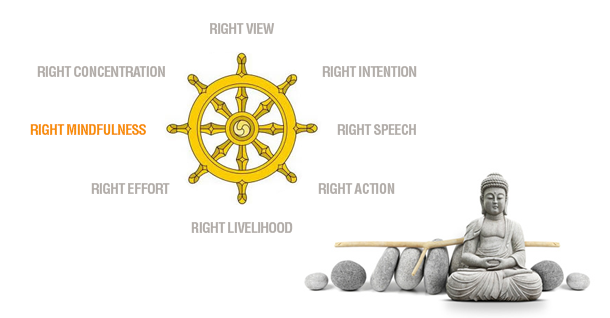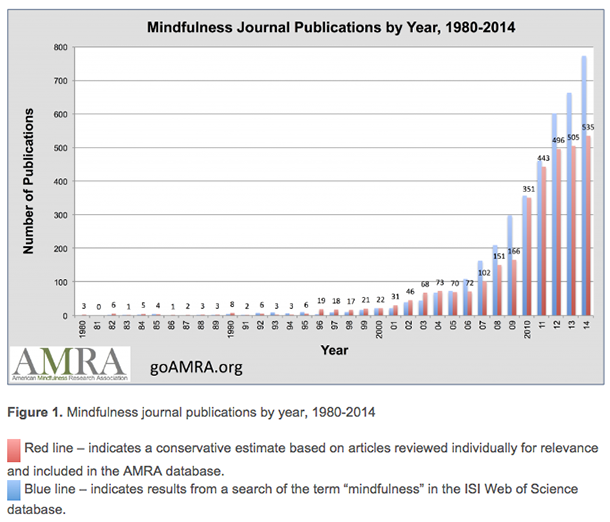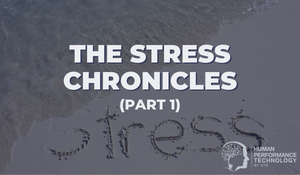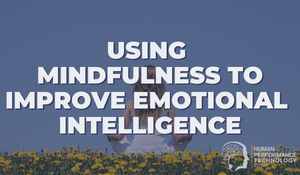The Evidence for Mindfulness: A Research Summary for the Corporate Sceptic

Often touted as the equivalent of going to the gym for the mind, mindfulness is an emergent phenomenon that promises relief for busy professionals—asking them to slow down, stop, sit, relax, breathe, and find a moment to be in the present. Indeed, sitting silently is fast becoming the new hurrying hysterically.
New Republic magazine dubbed 2014 the "Year of Mindfulness." Hot on its heels, an article in the Harvard Business Review noted that mindfulness is close to taking on cult status in the business world.
It seems like all the cool kids have turned to the quiet side and are drinking the soothe aid: Google, Apple, IBM, Intel, McKinsey & Company, General Electric, General Mills, Nike, Sony, Ford, Target, Ikea, eBay, LinkedIn, and the US Marines, to name a few. Replete with a long list of endorsements from celebrities and business leaders, just about every major publication and media outlet has commented on the trend, the coverage of which has been overwhelmingly positive.
Mindfulness has even achieved the holy trinity of PR exposure: the cover of TIME magazine, a feature story on 60 Minutes, and airtime on Oprah.

Then came 2015: the year of backlash.
Among the concerned adults: Adam Grant wrote an opinion piece in the New York Times, "Can We End the Meditation Madness?" Emma Barnett called mindfulness "the saddest trend of 2015" in The Telegraph. Melanie McDonagh one-upped that charge by claiming mindfulness is "worse than just a smug middle-class trend" in The Spectator. And David Brendel warned "There Are Risks to Mindfulness at Work" in the Harvard Business Review.
Where do I stand amid all this commotion? Stupendously ignorant, for the most part. Although I have been aware of a disturbance in the force for several years now, the presence of mindfulness in business had really only registered on the outer periphery of my awareness. I don't meditate, I don't have any special interest in meditation, and I don't have any opinion on the people who do. But the noise interests me.
Having recently heard a speaker dismiss the rise of mindfulness at work as a “stupid fad” (and he did not look too kindly upon HR practitioners who championed its cause), I began to wonder if this opinion was honestly justified. Was the speaker hinting at damning evidence the public was blissfully unaware of? Was it all a diabolical scam?
And so, when I don't understand something, it's time to procure an informed opinion.
For me, three questions stand out:
- What is mindfulness?
- What research has been done?
- Why should anyone in the business sector care?
These were the questions at the centre of my weeklong inquiry, sifting through academic papers and popular press reports. What follows is an overview of my findings, and I apologise for the length, but it's as concise as I could manage, given the enormous size of the available data, while at the same time attempting to maintain a degree of comprehensiveness.
Origins of Mindfulness
The English words "mindfulness," "mindful," and "mindfully" have been in use for hundreds of years, but they were never explicitly connected to any type of meditation practice—until the late 19th century. "Mindfulness" was the noun selected for translation into English by the religious scholar Thomas Rhys Davids from the term "Sati" of the Pali language, which is the language used in the central texts of the Theravada branch of Buddhism. Sati is an essential concept in Buddhism, part of the seventh element of the Buddha's Noble Eightfold Path ("right mindfulness").

According to Jeff Wilson, author of Mindful America (2014), there were three main forces that propelled the mindfulness movement into mainstream awareness, all emerging around the 1970s. The first was the vipassana meditation movement. The second was the Vietnamese Buddhist monk, Thich Nhat Hanh, author of more than 100 books on mindfulness, Buddhism, and peace, whom the Irish Times has described as the “father of mindfulness.” The third force was Jon Kabat-Zinn, who has played arguably the biggest role in establishing the scientific credibility of mindfulness in the West.

Although Kabat-Zinn has studied with Buddhist teachers, including Thich Nhat Hanh, and he has drawn on a variety of meditation techniques from different Buddhist traditions, the medical professor is not a Buddhist, nor is his approach to mindfulness religious in nature. Kabat-Zinn, who has a PhD in molecular biology from MIT, became interested in the health benefits of mindfulness, which he sought to investigate and study through a scientific lens. Recognising that people seemed to benefit from extended time spent pinning their attention to the present not only psychologically but physically as well, Kabat-Zinn went on to develop a popular mindfulness program that was dislocated from its religious roots. (i.e., no Four Noble Truths; no Eightfold Path.)
Kabat-Zinn founded the Mindfulness-Based Stress Reduction (MBSR) program in 1979 at the University of Massachusetts Centre for Mindfulness in Medicine, Health Care, and Society. According to the centre’s website, the 8-week MBSR program has been attended by more than 22,000 people. Mindfulness-Based Cognitive Therapy (MBCT), also an 8-week course, is an adaption of the MBSR program, which has emerged as a popular therapeutic intervention to treat depression. (The MBSR and MBCT programs are important to keep in mind as a large amount of research on mindfulness revolves around these two programs.)
Definition of Mindfulness
Most definitions of mindfulness gravitate to words that are similar in effect to: “moment-to-moment awareness of one’s experience without judgment” (Davis and Hayes, 2011). Kabat-Zinn describes mindfulness as “paying attention in a particular way; on purpose, in the present moment and non judgmentally.”
Process of Mindfulness
Mindfulness practice typically involves the deliberate effort to stabilise attention on specific physical sensations and environmental stimuli, attempting to reestablish a lock with the present moment when (and not if) the mind begins to wander. This deep engagement with the here-and-now is combined with an attitude of acceptance and openness, allowing thoughts and emotions to come and go without cognitive evaluation. Focused attention on breathing while maintaining nonjudgmental awareness of thoughts and sensations is the most common activity used in mindfulness training.
A distinction can be made between two main types of mindfulness practice: formal and informal. Informal practice involves cultivating awareness of the present during our everyday routines. This might include observing the surroundings on the bus ride to work, listening intently to people during conversation, and having awareness of the texture of food while chewing lunch.
Formal meditation practice is the mental equivalent of going to the gym. This involves a sustained period of focused attention as part of a predetermined routine. Simple physical activities that can be performed almost anywhere—such as sitting, eating, or walking—are often selected, which can be undertaken in a solitary or group setting, indoors or outdoors, for a period as low as 10 minutes a day to 2 hours or more.
The MBSR program, for example, involves 2½-hour group classes (generally the average size is 25-35 participants) held every week for 8 weeks, plus daily home assignments and 1 all-day class. Perhaps the most well-known organisational equivalent of MBSR is Google's "Search Inside Yourself" mindfulness program. According to Business Insider, the program has been in effect at Google since 2007, and can be taken as either a 2½-day intensive course or about 20 hours of classroom time spaced over 7 weeks.
Daniel Goleman, the Harvard-educated psychologist and science journalist who is best known for popularising the concept of emotional intelligence, has identified four basic elements involved in mindfulness practice. Citing the work of Hasenkamp and Barsalou (2012), these are:
- you focus on one thing (say, your breath)
- your mind wanders off
- you notice it wandered
- you shift attention back to that one thing again.
The deliberate act of bringing one's attention back to the present after it wanders off can be thought of as “the basic rep in our mental gym, quite akin to lifting free weights” (Goleman, 2014).
The Difference Between Mindfulness and Meditation
Mindfulness is a form of meditation. Meditation is a term that broadly clusters together a wide range of practices under the one banner, which is convenient from a language perspective, but can lead to confusion when understanding particulars.
Meditators might seek to cultivate an emotional state such as love or compassion, develop a specific mode of thinking or mental state, relax the body, deal with negative experiences and reduce stress, and/or achieve a form of spiritual enlightenment, growth, insight and awakening. Humming, chanting, sitting in silence, watching a flame, listening to music or someone’s voice are all options in the mix.
In terms of technique, mindfulness is much more specific. (Meditation = broad / mindfulness = specific.) That’s the first major difference. The second major difference is that meditation is often associated with religious or spiritual groups. Mindfulness is distinctly secular (at least, as it is known in the West). Because it is specific and secular, mindfulness has naturally been of greater appeal to the business and scientific communities than many other types of meditation practices.
Research on Mindfulness
Just by glancing at the graph below, you can already begin to get a sense of the interest in mindfulness coming from the scientific community, with the number of publications gaining momentum around the start of the century, then exploding in size around 2010.

Mindfulnet.org lists hundreds of scientific papers associated with mindfulness, providing the names of the studies, the journal publication, and their respective authors. There's always the fun issue of dealing with journal paywalls if you want to access articles in their entirety, but at least the site provides a good starting point for understanding the scope of the research and the different types of research applications. Categories include, but are not limited to, the application of mindfulness the workplace, children and families, teaching, healthcare, psychotherapy, pain, stress reduction, substance abuse, and neuroscience.
At a broad level, mindfulness is associated with a range of benefits. Some of the most frequently cited are related to:
- Stress
- Anxiety
- Depression
- Chronic pain
- Physical health
- Blood pressure
- Immune response
- Mood
- Sleep
- Well-being
- Empathy
- Self-regulation
- Emotional resilience
- Cognitive function
- Focus
- Working memory
- Productivity
- Multitasking
- Structural changes in the brain
Specific Studies and Reports on Mindfulness
A large body of research on meditation has already been in existence for quite some time. The scientific studies and business reports that have been singled out below focus almost exclusively on mindfulness rather than meditation more broadly. It should be noted that mindfulness research as it relates to business is only beginning to emerge. Nonetheless, there are many noteworthy findings that have been reported in recent years, which have been included first, followed by academic research involving literature reviews, meta-analyses, controlled trials, as well as several studies looking at the physical effects of mindfulness on the brain.
Awake@Intel is a mindfulness program that Intel plans to make available to over 100,000 employees in 63 countries. To date, 1,500 employees have taken part, having completed 19 sessions. The results so far: “On average, participants responding to pre- and post- self-evaluation questionnaires report a 2-point decrease (on a 10-point scale) in experiencing stress and feeling overwhelmed, a 3-point increase in overall happiness and wellbeing, and a 2-point increase in having new ideas and insights, mental clarity, creativity, the ability to focus, the quality of relationships at work and the level of engagement in meetings, projects and collaboration efforts.”
- Title: There's No Price Tag on a Clear Mind: Intel to Launch Mindfulness Program
- Publication: The Guardian (source)
- Author: Kristine A Wong
- Date: April 2014
At the American health insurer, Aetna, nearly 15,000 employees have participated in at least one yoga or meditation class “and those who have report, on average, a 28% reduction in their stress levels, a 20% improvement in sleep quality and a 19% reduction in pain. They also become more effective on the job, gaining an average of 62 minutes per week of productivity each, which Aetna estimates is worth $3,000 per employee per year.” Further to these benefits, in 2012 medical claims dropped by 7.3%, which amounted to a $9 million saving for the company.
- Title: At Aetna, a C.E.O.’s Management by Mantra
- Publication: The New York Times (source)
- Author: David Gelles
- Date: February 2015
The multinational manufacturer, General Mills, has had over 500 employees attend their Mindful Leadership program, created by General Mills’ deputy general counsel, Janice Marturano. According to the company's self-report data: "After one of Marturano’s 7-week courses, 83% of participants said they were 'taking time each day to optimise my personal productivity' – up from 23% before the course. 82% said they now make time to eliminate tasks with limited productivity value – up from 32% before the course. And among senior executives who took the course, 80% reported a positive change in their ability to make better decisions, while 89% said they became better listeners."
- Title: The Mind Business
- Publication: The Financial Times (source)
- Author: David Gelles
- Date: August 2012
Herbert Smith Free-hills (HSF), a global law firm with around 5,000 employees, was the first company to launch a mindfulness program in the Australian legal industry. Approximately 200 employees have gone through the 6-week HSF mindfulness program in the last 14 months. Some of the results from the 6-week program include: "a 12% increase in employee focus; a 10% increase in employee performance; a 10% increase in employee efficiency; a 17% increase in employee work/life balance; an 11% increase in employee communication skills; a 14% decrease in employee multitasking."
- Title: Why Mindfulness Works Wonders
- Publication: L&D Professional magazine (source)
- Author: John Hilton
- Date: February 2016
“Three groups each of 12-15 human resources personnel were tested: (1) those who underwent an 8-week training course on mindfulness-based meditation, (2) those who endured a wait period, were tested, and then underwent the same 8-week training, and (3) those who had 8-weeks of training in body relaxation. We found that only those trained in meditation stayed on tasks longer and made fewer task switches, as well as reporting less negative emotion after task performance, as compared with the other two groups. In addition, both the meditation and the relaxation groups showed improved memory for the tasks they performed.”
- Title: The Effects of Mindfulness Meditation Training on Multitasking in a High-Stress Information Environment
- Publication: Human Relations (source)
- Author: Levy, Wobbrock, Kaszniak, and Ostergren
- Date: 2012
“In a randomised controlled investigation, we examined whether a 2-week mindfulness-training course would decrease mind wandering and improve cognitive performance. Mindfulness training improved both GRE reading-comprehension scores and working memory capacity while simultaneously reducing the occurrence of distracting thoughts during completion of the GRE and the measure of working memory… Our results suggest that cultivating mindfulness is an effective and efficient technique for improving cognitive function, with wide-reaching consequences.”
- Title: Mindfulness Training Improves Working Memory Capacity and GRE Performance While Reducing Mind Wandering
- Publication: Psychological Science (source)
- Author: Mrazek, Franklin, Phillips, Baird, and Schooler
- Date: March 2013
89 participants from the Dow Chemical Company were selected and randomly assigned to an online mindfulness intervention (n = 44) or wait-list control (n = 45). The results of the intervention found “the group had significant decreases in perceived stress as well as increased mindfulness, resiliency, and vigor. This online mindfulness intervention seems to be both practical and effective in decreasing employee stress, while improving resiliency, vigor, and work engagement, thereby enhancing overall employee well-being.”
- Title: Mindfulness Goes to Work: Impact of an Online Workplace Intervention
- Publication: Journal of Occupational & Environmental Medicine (source)
- Author: Aikens, Astin, Pelletier, Levanovich, Baase, Park, and Bodnar
- Date: July 2014
“In recent years, research on mindfulness has burgeoned across several lines of scholarship. Nevertheless, very little empirical research has investigated mindfulness from a workplace perspective… Testing these claims in a dynamic service industry context, we find support for a positive relationship between workplace mindfulness and job performance that holds even when accounting for all three work engagement dimensions.”
- Title: Examining Workplace Mindfulness and Its Relations to Job Performance and Turnover Intention
- Publication: Human Relations (source)
- Author: Dane and Drummel
- Date: January 2014
“We performed a comprehensive review and meta-analysis of published and unpublished studies of health-related studies related to MBSR… 20 reports met criteria of acceptable quality or relevance to be included in the meta-analysis… Although derived from a relatively small number of studies, these results suggest that MBSR may help a broad range of individuals to cope with their clinical and nonclinical problems… Acceptable studies covered a wide spectrum of clinical populations (e.g., pain, cancer, heart disease, depression, and anxiety), as well as stressed nonclinical groups… Our findings suggest the usefulness of MBSR as an intervention for a broad range of chronic disorders and problems. In fact, the consistent and relatively strong level of effect sizes across very different types of sample indicates that mindfulness training might enhance general features of coping with distress and disability in everyday life, as well as under more extraordinary conditions of serious disorder or stress.”
- Title: Mindfulness-based Stress Reduction and Health Benefits. A Meta-analysis
- Publication: Journal of Psychosomatic Research (source)
- Author: Grossman, Niemann, Schmidt, and Walach
- Date: June 2008
A meta-analysis of 23 reviews of randomised control trials (RCTs), using the standardised MBSR or MBCT programs, found that “compared to wait list control and compared to treatment as usual, MBSR and MBCT significantly improved depressive symptoms, anxiety, stress, quality of life, and physical functioning.”
- Title: Standardised Mindfulness-Based Interventions in Healthcare: An Overview of Systematic Reviews and Meta-Analyses of RCTs
- Publication: PLOS ONE (source)
- Author: Gotink, Chu, Busschbach, Benson, Fricchione, and Hunink
- Date: April 2015
“Based on an examination of empirical literature across multiple methodologies, this review concludes that mindfulness and its cultivation facilitates adaptive psychological functioning. Despite existing methodological limitations within each body of literature, there is a clear convergence of findings from correlational studies, clinical intervention studies, and laboratory-based, experimental studies of mindfulness—all of which suggest that mindfulness is positively associated with psychological health, and that training in mindfulness may bring about positive psychological effects. These effects ranged from increased subjective well-being, reduced psychological symptoms and emotional reactivity, to improved regulation of behaviour.”
- Title: Effects of Mindfulness on Psychological Health: A Review of Empirical Studies
- Publication: Clinical Psychology Review (source)
- Author: Keng, Smoski, and Robins
- Date: August 2016
“20 novice meditators were tested before and after participation in a 10-day intensive mindfulness meditation retreat… results indicated that those completing the mindfulness training demonstrated significant improvements in self-reported mindfulness, depressive symptoms, rumination, and performance measures of working memory and sustained attention, relative to a comparison group who did not undergo any meditation training.”
- Title: The Impact of Intensive Mindfulness Training on Attentional Control, Cognitive Style, and Affect
- Publication: Cognitive Therapy and Research (source)
- Author: Chambers, Lo, and Allen
- Date: June 2008
The effects of mindfulness training on working memory capacity in high stress environments were investigated in relation to a military unit (n = 31). Two control groups were included: one military (n = 17) and one civilian (n = 12). Within the military unit, working memory increased in proportion to the amount of mindfulness practice, while the civilian control group remained stable and the military control group showed decreased capacity. The authors concluded that "working memory capacity may be bolstered by mindfulness training" and the training may also "protect against functional impairments associated with high-stress contexts." The study was the first to empirically examine the protective effects of mindfulness training within the context of pre-deployment military.
- Title: Examining the Protective Effects of Mindfulness Training on Working Memory Capacity and Affective Experience
- Publication: Emotion (source)
- Author: Jha and Stanley
- Date: 2010
"We systematically reviewed the evidence regarding the effects of school-based mindfulness interventions on psychological outcomes, using a comprehensive search strategy designed to locate both published and unpublished studies... In total, 1348 students were instructed in mindfulness, with 876 serving as controls, ranging from grade 1 to 12... All in all, mindfulness-based interventions in children and youths hold promise, particularly in relation to improving cognitive performance and resilience to stress."
- Title: Mindfulness-based Interventions in Schools—A Systematic Review and Meta-analysis
- Publication: Frontiers in Psychology (source)
- Author: Zenner, Herrnleben-Kurz, and Walach
- Date: June 2014
“Anatomical MRI images from 16 healthy, meditation-naïve participants were obtained before and after they underwent the eight-week [MBSR] program… [Analyses] confirmed increases in gray matter concentration within the left hippocampus. Whole brain analyses identified increases in the posterior cingulate cortex, the temporo-parietal junction, and the cerebellum in the MBSR group compared to the controls. The results suggest that participation in MBSR is associated with changes in gray matter concentration in brain regions involved in learning and memory processes, emotion regulation, self-referential processing, and perspective taking.”
- Title: Mindfulness Practice Leads to Increases in Regional Brain Gray Matter Density
- Publication: Psychiatry Research: Neuroimaging (source)
- Author: Hölzel, Carmody, Vangel, Congleton, Yerramsetti, Gard, and Lazar
- Date: January 2011
“We performed a randomised, controlled study on the effects on brain and immune function of a well-known and widely used 8-week clinical training program in mindfulness meditation [MBSR] applied in a work environment with healthy employees… We report for the first time significant increases in left-sided anterior activation, a pattern previously associated with positive affect, in the meditators compared with the non-meditators. We also found significant increases in antibody titers to influenza vaccine among subjects in the meditation compared with those in the wait-list control group… These findings demonstrate that a short program in mindfulness meditation produces demonstrable effects on brain and immune function.”
- Title: Alterations in Brain and Immune Function Produced by Mindfulness Meditation
- Publication: Psychosomatic Medicine (source)
- Author: Davidson, Kabat-Zinn, Schumacher, Rosenkranz, Muller, Santorelli, Urbanowski, Harrington, Bonus, and Sheridan
- Date: July 2003
“This year [2015], a team of scientists from the University of British Columbia and the Chemnitz University of Technology were able to pool data from more than 20 studies to determine which areas of the brain are consistently affected [by mindfulness training]. They identified at least 8 different regions… Neuroscientists have also shown that practicing mindfulness affects brain areas related to perception, body awareness, pain tolerance, emotion regulation, introspection, complex thinking, and sense of self. While more research is needed to document these changes over time and to understand underlying mechanisms, the converging evidence is compelling.”
- Title: Mindfulness Can Literally Change Your Brain
- Publication: Harvard Business Review (source)
- Author: Congleton, Hölzel, and Lazar
- Date: January 2015

Criticisms, Risks and Limitations of Mindfulness
Some of the main concerns associated with mindfulness research or practical application are as follows:
- The overall quantity of research on mindfulness meditation is extensive, however the quality of the research is underdeveloped. Experimental rigour is a concern in many studies.
- There is considerable challenge in operationalising mindfulness (i.e., establishing scientific tests) due to disparities in mindfulness definitions and training techniques (Keng et al., 2011).
- Due to the nature of the intervention, double blinding cannot be implemented in meditation trials, which exposes the risk of placebo effect. Moreover, studies often lack any kind of attempt to control for placebo (e.g., lack of wait-list controlled studies).
- Studies often have risk of bias, both on the part of the researchers and the participants. For example, people who already believe in the benefits of meditation are more likely to enrol in a meditation program and report positive outcomes (Goyal et al., 2011).
- Mindfulness may not be any more effective than established therapeutic interventions. For example, a comprehensive meta-analysis published in JAMA Internal Medicine by 15 authors examined 47 trials with 3,320 participants. While mindfulness meditation programs showed moderate evidence to improve anxiety, depression, and pain at 8 weeks, the authors found “insufficient evidence of any effect of meditation programs on positive mood, attention, substance use, eating, sleep, and weight.” There was “no evidence that meditation programs were better than any active treatment (drugs, exercise, other behavioural therapies)” (Goyal et al., 2011).
- It is difficult to determine which aspects of a mindfulness intervention have the greatest effect on reported improvements. For example, MBSR and MBCT involve not just meditation, but also "psycho-education and yoga-like exercises" (Gontink et al., 2015). Furthermore, the group-supportive environment, the perception of novelty of the intervention, as well as generic resting and relaxing activities are all potential contamination factors (Zenner et al., 2014).
- Limited amount of research on mindfulness related to the workplace.
- Limited long-term follow-up in many studies.
- Limited sample sizes in many studies.
- Mindfulness is not suitable for everyone. Like any therapeutic intervention, not every participant enjoys or benefits from mindfulness training. In some situations, mindfulness training may actually have adverse psychological effects (for example, create conditions under which traumatic memories surface and/or stressful experiences are revisited).
- Companies might see mindfulness programs as a way to offset high-stress work environments as a substitute for addressing environmental factors.
Conclusion
As noted in every systematic review of the literature that I encountered, the field of mindfulness research is marked by methodological limitations. With that said, there is a clear convergence of findings indicating a positive relationship between mindfulness training and physical health, psychological well-being, and cognitive performance. The research related to brain plasticity is nascent but looks initially promising. I believe there is a case for mindfulness in business, which is likely to grow more robust as greater numbers of companies develop programs and release their in-house data.
Mindfulness is not a panacea; it will not produce utopian workplaces; it is not the "golden elixir" for modern life; it is not everyone's cup of tea. However, the preponderance of evidence suggests that regular mindfulness practice can produce small to moderate improvements for a large percentage of the population, in a wide range of areas, in a relatively short period of time, and at little to no cost, which, for individuals and companies, is worthy of attention. In view of these findings, I will be giving mindfulness more serious consideration.

Topics:
Emotional Intelligence
Theo Winter
Client Services Manager, Writer & Researcher. Theo is one of the youngest professionals in the world to earn an accreditation in TTI Success Insight's suite of psychometric assessments. For more than a decade, he worked with hundreds of HR, L&D and OD professionals and consultants to improve engagement, performance and emotional intelligence of leaders and their teams. He authored the book "40 Must-Know Business Models for People Leaders."



We Would Like to Hear From You (0 Comments)